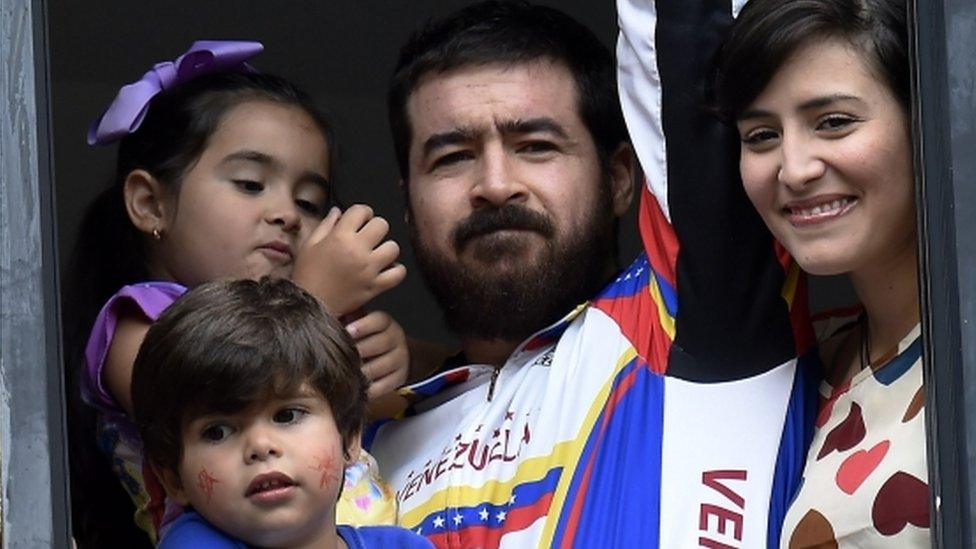Venezuela protests: Large anti-Maduro march held in Caracas
- Published
The Caracas rally was peaceful but ended with minor clashes
Hundreds of thousands of people have marched through the Venezuelan capital, Caracas, to protest against President Nicolas Maduro.
Opposition supporters, staging their largest rally for two years, called for Mr Maduro's removal.
They blame him for Venezuela's economic crisis and accuse the electoral commission of delaying a referendum that could shorten his stay in power.
Mr Maduro's supporters also rallied in large numbers.
He accuses the opposition of trying to stage a coup.
The opposition said close to a million people turned out for their march, dubbed the "Takeover of Caracas", but the government disputed the figures.
"We have shown to the world the importance of Venezuela and how much it wants change," said opposition politician Jesus Torrealba.
Dressed predominantly in white, they chanted "we are going to bring down Maduro".
Protesters said they had enough of the policies of the governing United Socialist Party of Venezuela.
"We are going to defeat hunger, crime, inflation and corruption. They've done nothing in 17 years. Their time is finished," Naty Gutierrez told Reuters news agency.
A small group of protesters clashed with riot police as the peaceful rally ended.
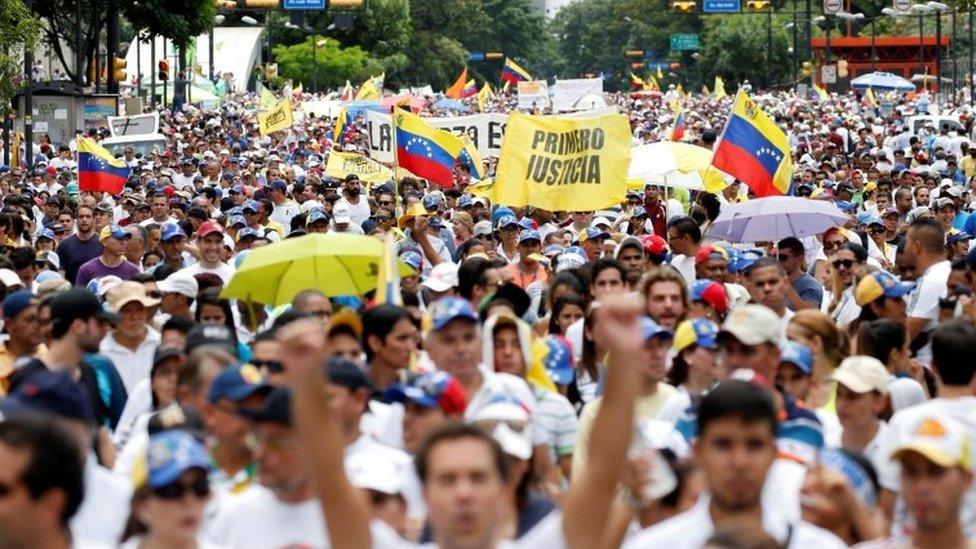
Protesters blame the socialist policies of the past 17 years for high inflation and crime
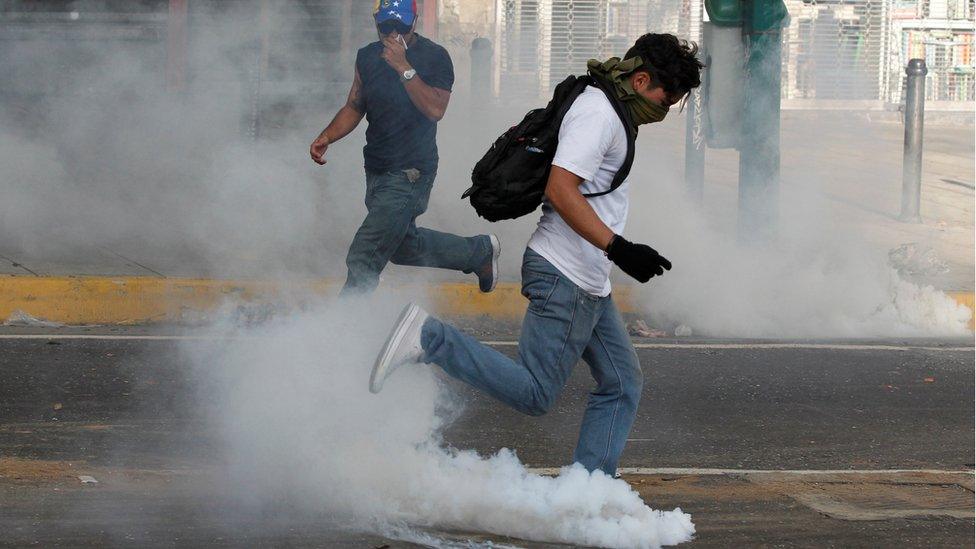
There were clashes between anti-Maduro protesters and police
"The nation has triumphed. They wanted to intimidate the people but the people are here," said Mr Maduro at a rally in central Caracas he said was attended by 30,000 people.
"We have defeated an attempted coup that tried to fill Venezuela and Caracas with violence, death," he said.
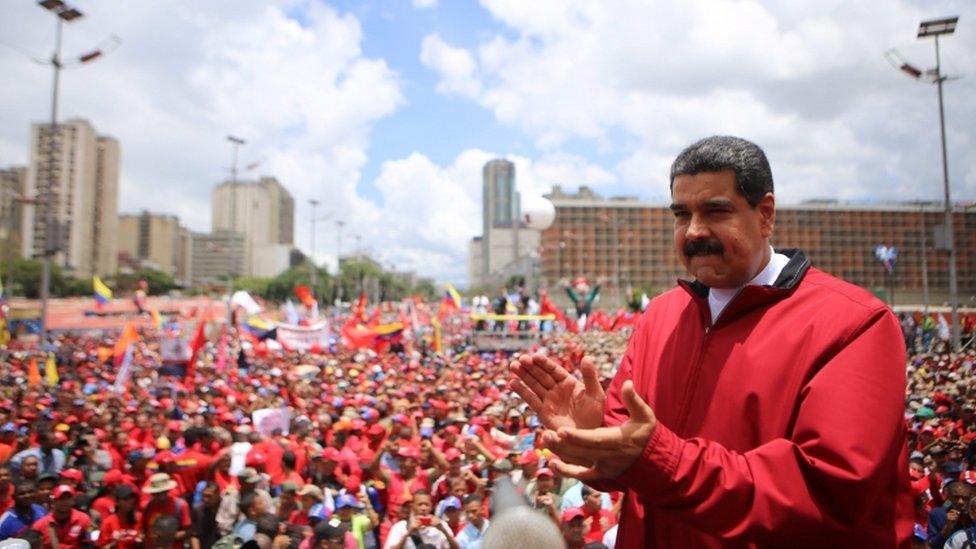
Mr Maduro's six-year term ends in January 2019
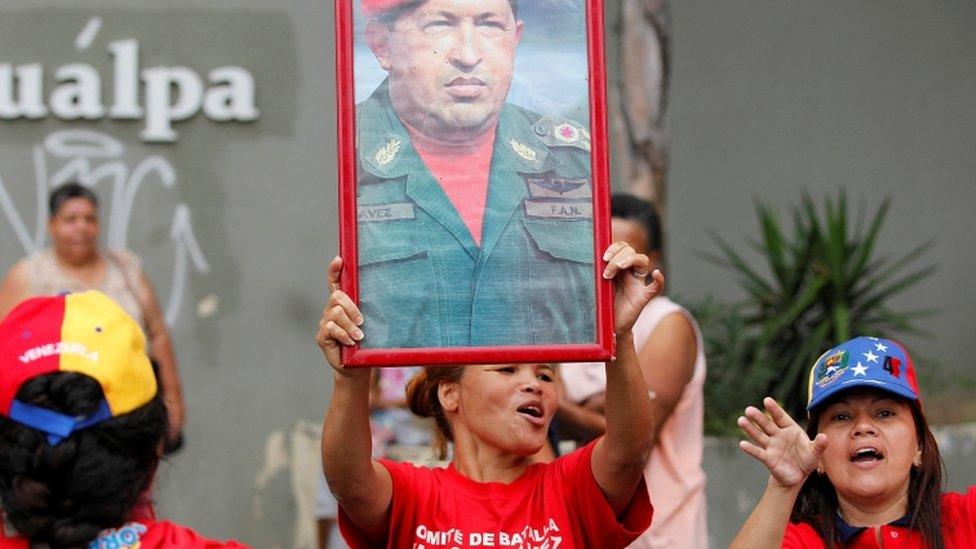
Government supporters hold a picture of the late president, Hugo Chavez, during a rival march in Caracas
In the run-up to the march, a number of opposition politicians were detained.
Last week, Daniel Ceballos of the opposition Popular Will party was returned to prison after having spent a year under house arrest awaiting trial on charges of rebellion.
The Interior Ministry said he was planning on escaping from house arrest to carry out acts of violence during Thursday's rally.
Mr Ceballos was one of the politicians arrested in 2014 over violent anti-government protests that swept through Venezuela at the time.
Forty-three people on both sides of the political divide where killed during those protests.
Popular Will party activists Carlos Melo and Yon Goicoechea have also been arrested over the past few days, the first suspected of carrying a "detonator cord" and the latter of carrying explosives.
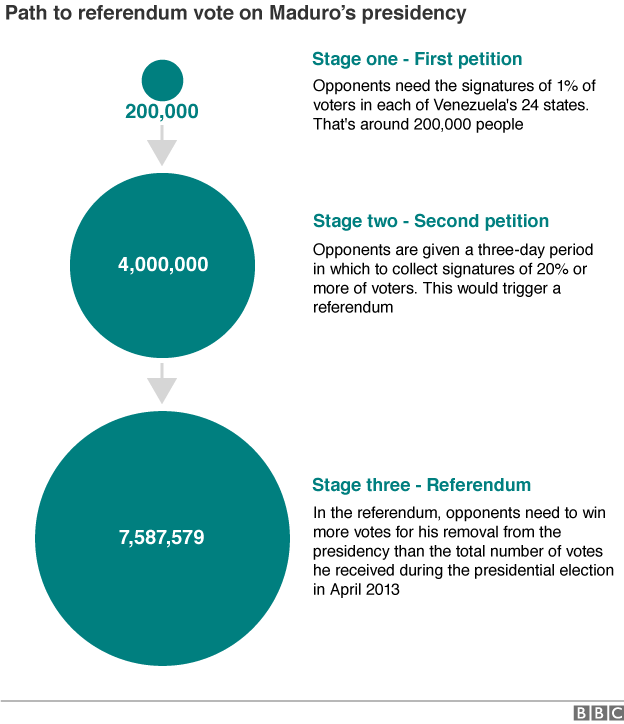
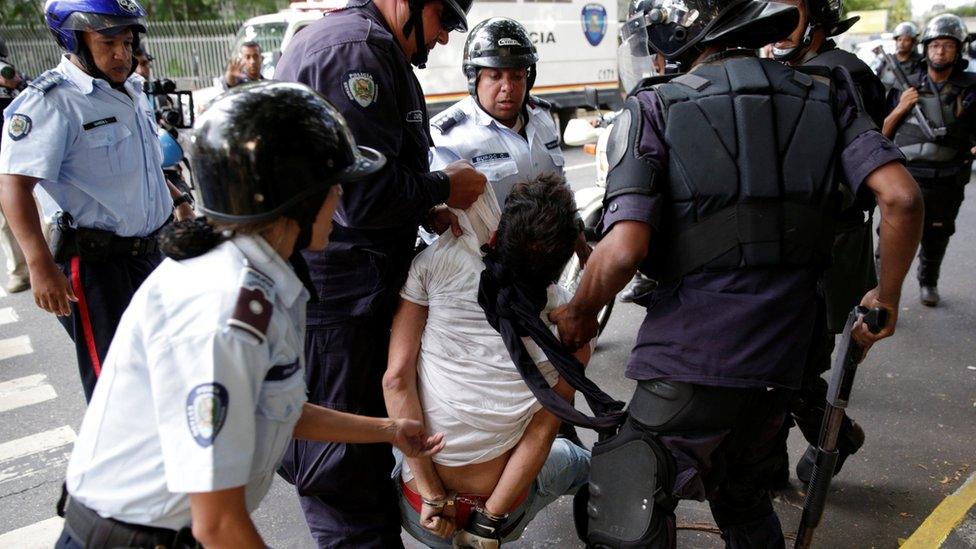
Police detained a number of protesters
The opposition hopes the march will pressure the electoral authorities into allowing them to launch the second petition needed to trigger the recall referendum as soon as possible.
Timing is key as the date when the referendum is held will determine what happens next.
If a referendum should go against the president before 10 January, new elections will be held, which the opposition hopes to win.
But if it is held after that date and Mr Maduro is recalled, his loyal vice-president will serve out the end of his term until 2019.
- Published23 August 2016
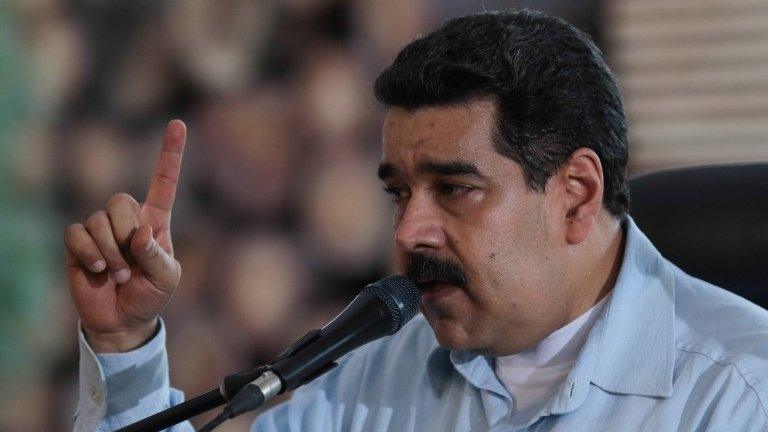
- Published15 August 2016
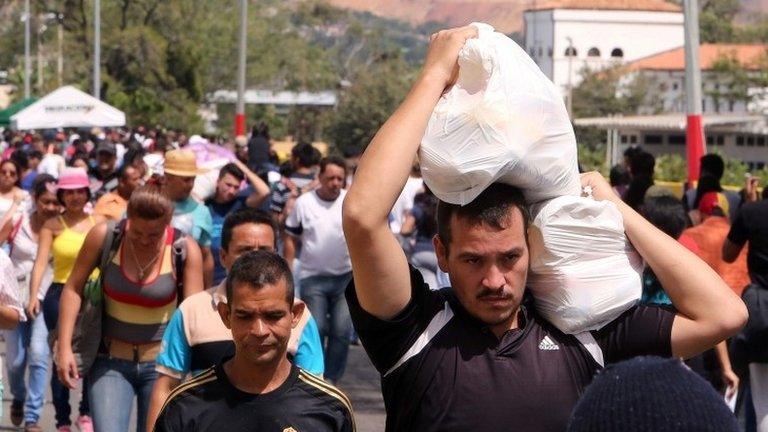
- Published28 August 2016
